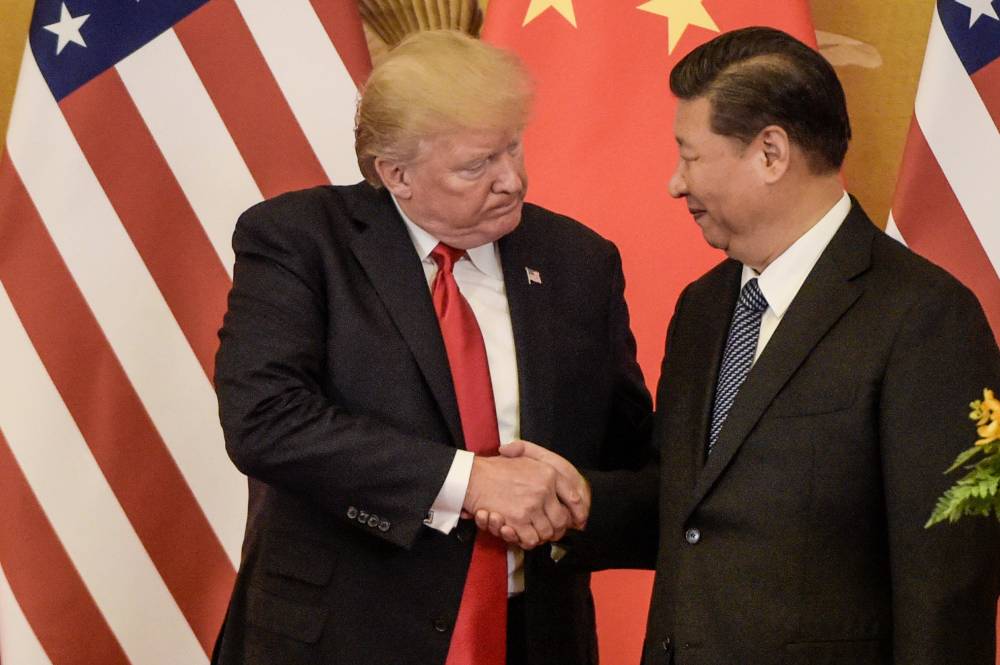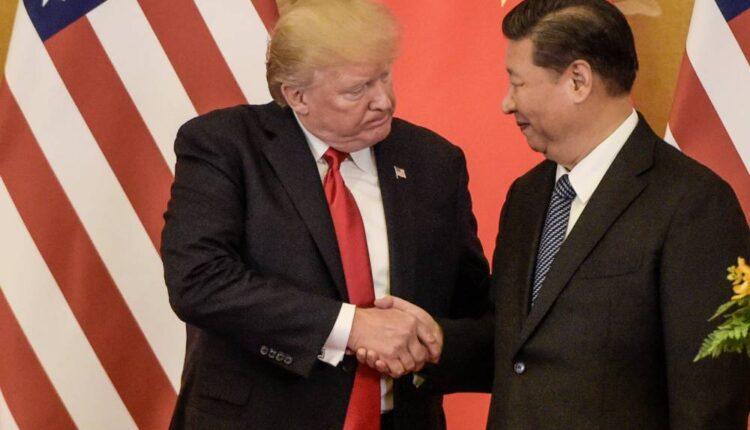
- The economic recovery in China, where the coronavirus first emerged, is "going to look very impressive," said Michael Spencer, Deutsche Bank's chief economist and head of research for Asia Pacific.
- Spencer said improving domestic demand in China is expected to help the economy grow by 5%-6% quarter on quarter in April-June, following a contraction in January-March.
- But the biggest risk to the Chinese — and global — economy is the U.S., he said.
- The U.S. is reopening "too soon," which could trigger another wave of coronavirus infections and further rounds of lockdown, he added.
VIDEO2:0802:08U.S. jobs outlook is 'very weak' as economy faces 'long haul' to recovery: Deutsche BankSquawk Box Asia
China's economy is improving and could register "very impressive" growth — but the U.S. is the biggest risk that could derail that recovery, a Deutsche Bank economist said on Monday.
Much of the global economy is still reeling from lockdown measures imposed to contain the coronavirus pandemic. Restrictions that include workplace closures and stay-at-home orders significantly cut down economic activity worldwide — dampening any prospects for growth this year.
But China, where the coronavirus first emerged, is often cited as one of the few economies that could still grow. The Chinese recovery is "going to look very impressive" with a growth of 5%-6% quarter on quarter in April-June, following a contraction in the previous three months, said Michael Spencer, Deutsche Bank's chief economist and head of research for Asia Pacific.
"The domestic demand part of the Chinese economy has recovered well," he told CNBC's "Squawk Box Asia."
I don't think we will reach the level of pre-crisis GDP (in the U.S.) until … 2022 and probably way beyond thatSteve Hankesenior fellow at Cato Institute
Spencer said "a broad range of indicators" — such as auto and property sales — are "returning to normal" in China. The country's exports have also been better than expected, but could get "a lot worse" in the next few months given the economic weakness in China's major export destinations, he added.
'Tough road' ahead for U.S. economy
The biggest risk to the Chinese — and global — economy is the U.S., according to the economist. He explained that the U.S. is reopening "too soon" from lockdown measures, which could trigger another wave of infections and further rounds of restrictions.
That would leave the U.S. economy struggling, in spite of a surprise jump in employment gains, added Spencer.
Zoom In IconArrows pointing outwards
Steve Hanke, a senior fellow at American libertarian think tank Cato Institute, said the U.S. economy could take many years to recover from the "enormous" damage.
"And to repair it, it's just not going to happen immediately. I don't think we will reach the level of pre-crisis GDP until … 2022 and probably way beyond that," he told CNBC's "Street Signs Asia" on Monday.
"So, we've got a tough road to follow here," he added.
Phase one trade deal hanging 'by a thread'
Tensions between the U.S. and China, which have been worsening in recent months, are expected to be "exceptionally sensitive" this year, said Deutsche Bank's Spencer.
The U.S. is scheduled to hold presidential election in November. Incumbent President Donald Trump will make China "the main part of his reelection pitch" by touting that he'll be tougher on Beijing than his presumptive Democratic challenger, Joe Biden, added Spencer.
VIDEO2:5202:52U.S. economy may only recover to pre-crisis levels in 2022, says expertStreet Signs Asia
"So the rhetoric between China and the U.S. has already gotten very worrying, and I think can only get worse through this summer," he said, adding that "there's no prospect" for the two countries to conclude the second phase of the trade deal.
The two countries signed the "phase one" trade deal in January, which put a pause to their tariff war that lasted over a year. The Trump administration had aimed to start talks on the second phase of the deal before the U.S. November election.
But even the phase one deal appears to be "hanging on by a thread," said Spencer. "The risks are that even that phase one … gets broken or gets abandoned in the next few weeks and months."
Source: cnbc.com

